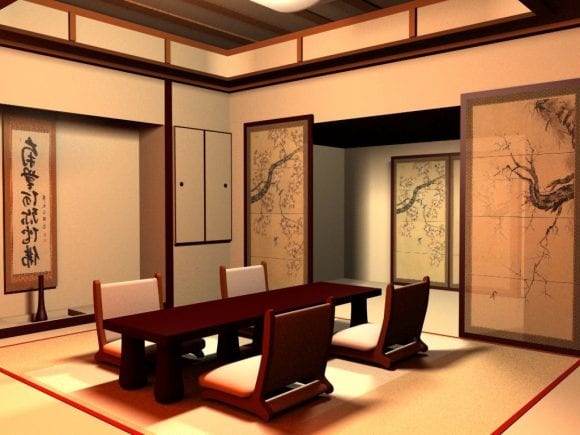According to Hofstede Insights (n. d.) Japan scores a 46 on Individualism whereas the United States scores a 91. This shows that Japan is a collectivistic society meaning they put group harmony above the expression of individual opinions (Hofstede Insights, n. d.). According to Moran, Abramson, and Moran (2014) group leadership is more highly regarded than individual initiative. This means that if leaders from the United States are trying to motivate employees at a Japanese company, they need to use group rewards and group work in order to be a successful leader. Whereas in the United States, many jobs require employees to directly compete with each other in order to receive a reward. If a leader from the United States were to go to Japan and try to have employees compete with each other for a reward, this could greatly interfere with relationships which could result in lower productivity and higher conflict issues. Personal relationships score high with Japanese meaning cut-and-dried relationships with business contacts are inadequate and must be supplemented by a social relationship for maximum effect (Moran, Abramson, and Moran, 2014). This means that gift giving and entertaining a client with a “night on the town” is appropriate in Japanese culture. Leaders need to know about this when they have Japanese business associates visiting them in the United States. They will have traveled a long way and so American leaders need to really focus on making sure they keep a personal relationship by entertaining them.
Another aspect that leaders need to be aware of is their dress and appearance. Managers and business associates are expected to dress in neat, orderly, and conservative ways usually including a dress shirt, tie, and suit (Moran, Abramson, and Moran, 2014). When I visited Japan a few years ago I was told beforehand that the culture is very conservative. What is deemed appropriate in the United States might not be appropriate in Japan. What I mean by this is that casual wear also needs to cover a good amount of your body. One of my friends was stationed in Japan and it was a huge culture shock for her. She was accustomed to wearing sport clothing when going out but realized that many of the local Japanese people put more effort into their outfits and were more put together than she was. She was extremely embarrassed and from then on she made sure to spend more time on her appearance. According to Friedman and Lagrave (2018) unless you are a teenager, you need to look more polished. I think this also relates back to concept of having a strong sense of shame for losing face. Japanese tend to be clean, polite, and disciplined and self-control disguise is a highly emotional quality of Japanese character (Moran, Abramson, and Moran, 2014). This means that even being dressed appropriately is something that is highly regarded in order to preserve their reputation.
This is the Flag of Japan.
Another concept that leaders from the United States need to be aware of when entertaining Japanese business associates is that in Japanese culture eating is ritualistic, communal, and time consuming (Moran, Abramson, and Moran, 2014). When I traveled to Japan I was taken to a traditional Japanese restaurant where I had to take my shoes off and sit on the floor because the table was close to the floor. The meal was presented in multiple rounds and took almost two hours. We were having conversations with other people the entire time and so I really think this is a way to build personal relationships and get to know one another better.
This is an example of a traditional dining setting in Japan, similar to what I experienced at a restaurant while traveling in Japan.
Finally, I want to discuss a personal experience I had in Japan that really supports the concept of how Japanese culture values collectivism over individualism. When my family first arrived in Japan at the Tokyo airport we traveled by train to get to our hotel. The train was underground and so when we arrived at our stop we had to walk up a couple flights of stairs to get to the street. We had 2 suitcases, a stroller, a carseat, and our carry-on bags with us. While my husband was making trips carrying our stuff up the stairs an older woman came up to me and offered to help us. I was extremely shocked at her generosity because at her age I don’t think she could have carried a suitcase up flights of stairs by herself. There was another person walking by who saw me standing at the bottom of the stairs with my baby and asked if I needed help as well. In another situation my family and I were trying to figure out the train system and had multiple people come up to us and asked if we needed assistance. This really shows that Japanese culture emphasizes being polite and working together as a group.
Japan is a collectivistic nation meaning they will always focus on what is good for the group instead of over what is good for the individual. Since this is such a big difference in culture when compared to the United States, leaders need to make sure that they understand how to make personal connections when hosting Japanese business associates along with the appropriate ways to act and dress when traveling to Japan as well. Making sure leaders behave appropriately both in their home country when entertaining guests is just as important and behaving appropriately when in a foreign country.
References
Country Comparison: Japan, United States. (n. d.). Hofstede Insights. Retrieved from https://www.hofstede-insights.com/country-comparison/japan,the-usa/
Friedman, S., Lagrave, K. (2018). The Essential Things to Know Before You Visit Tokyo. Conde Nast. Retrieved from https://www.cntraveler.com/stories/2014-12-08/how-not-to-look-like-a-tourist-in-tokyo
Moran, R. T., Abramson, N. R., & Moran, S. V. (2014). Managing Cultural Differences (9th ed.). Oxford: Routledge.




Leave a Reply
You must be logged in to post a comment.